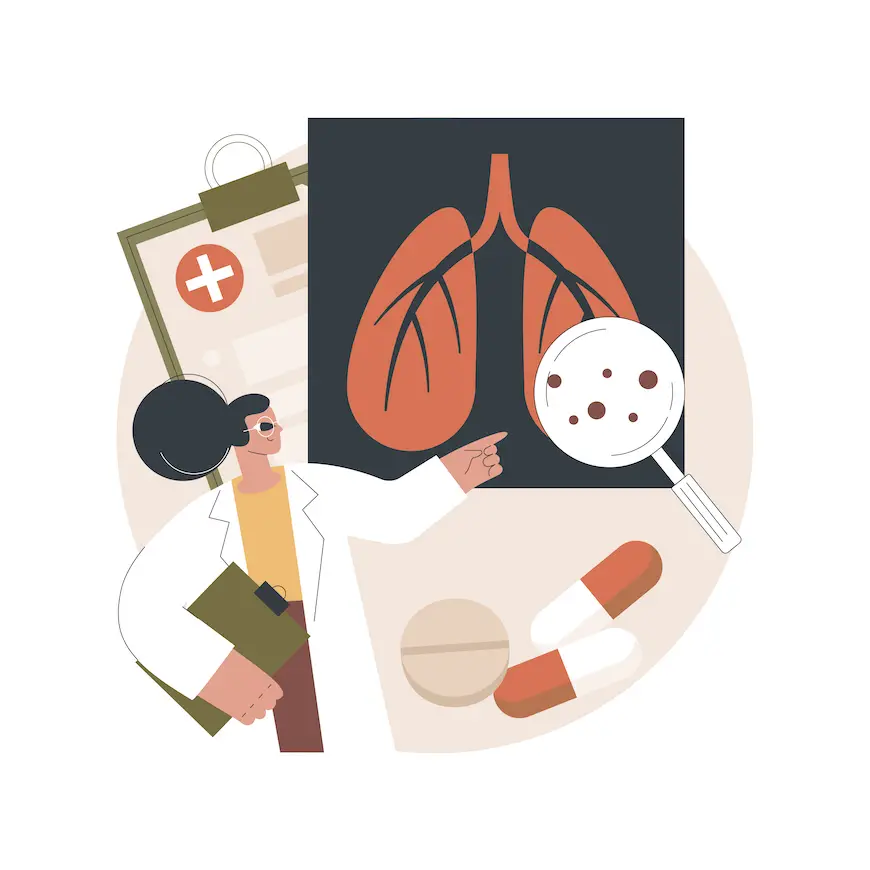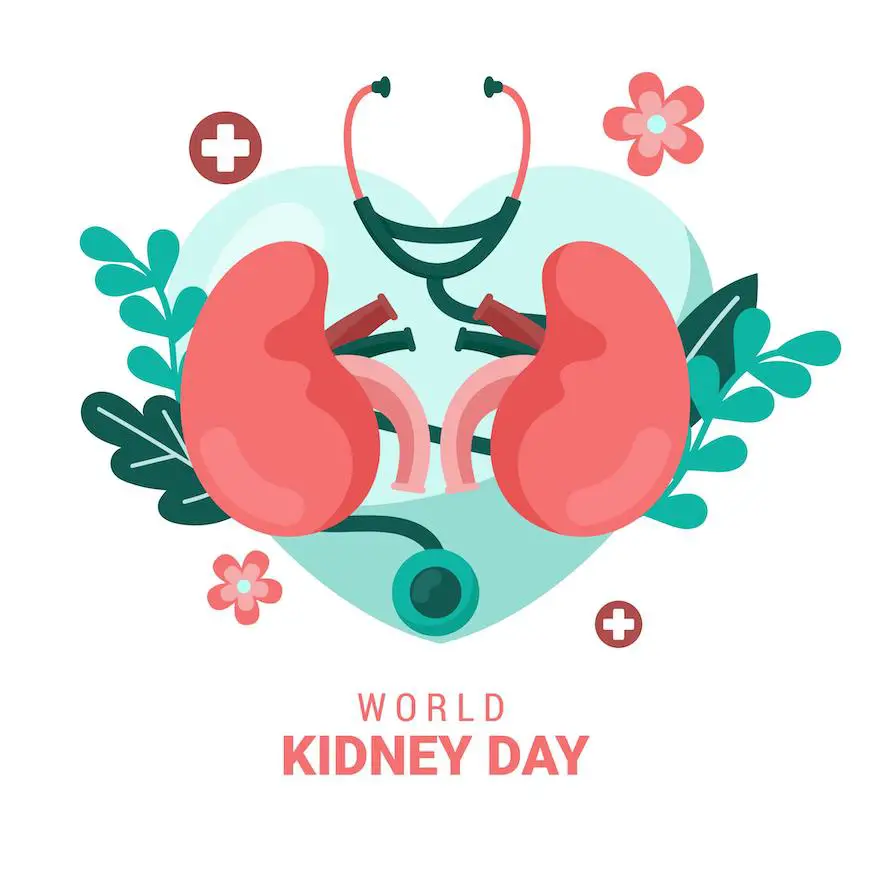- Key Takeaways
- Understanding Metastatic Breast Cancer
- Common Symptoms of Metastatic Breast Cancer
- Diagnosis and Staging of Metastatic Breast Cancer
- Available Treatment Approaches for Metastatic Breast Cancer
- Personalized Treatment Strategies
- Psychosocial Aspects of Living with Metastatic Breast Cancer
- Future Directions in Metastatic Breast Cancer Research
- Final Thoughts on Metastatic Breast Cancer
- FAQ
Metastatic breast cancer, often referred to as stage IV breast cancer, is when cancer cells from the breast spread to other parts of the body. This stage presents unique challenges and complexities, making it crucial for patients and their families to understand the symptoms, treatment options, and support available.
In this article, we will explore the key aspects of metastatic breast cancer, aiming to provide clarity and insight into living with this condition.
Key Takeaways
- Metastatic breast cancer is an advanced stage where cancer spreads beyond the breast.
- Common symptoms include fatigue, pain, and unexplained weight loss.
- Diagnosis involves various tests like biopsies and imaging to determine the extent of cancer spread.
- Treatment options range from systemic therapies to palliative care, focusing on managing symptoms and improving quality of life.
- Personalized treatment approaches, including clinical trials, are essential for optimizing care for those with metastatic breast cancer.
Understanding Metastatic Breast Cancer
Metastatic breast cancer, also called stage IV breast cancer, happens when breast cancer spreads to other parts of the body. It’s different from earlier stages because it’s not just in the breast or nearby lymph nodes anymore. This advanced stage presents unique challenges.
Definition and Overview
Metastatic breast cancer (MBC) means the cancer has spread beyond the breast to distant sites like the bones, liver, lungs, or brain. Cancer cells travel through the bloodstream and start new tumors in other organs.
Systemic therapy can help patients live longer and better, but it’s usually not curable. It’s a tough clinical challenge.
Stages of Metastatic Breast Cancer
It’s important to know that metastatic breast cancer is always stage IV, no matter where it spreads. However, doctors might use terms like “stage IVa,” “stage IVb,” or “stage IVc” to describe the extent of the spread.
These sub-stages help give a clearer picture of how far the cancer has progressed and can influence treatment decisions. It’s not about the original stage of the breast cancer, but about the extent of the spread now.
👉Read also: Breast Cancer Stages Explained: From Stage 0 to 4
Challenges in Diagnosis
Finding metastatic breast cancer early can be hard because the symptoms can be different depending on where the cancer has spread. Sometimes, people don’t have any symptoms at all, and the cancer is only found during routine check-ups or tests for other health problems.
Also, it can be tricky to tell the difference between symptoms caused by the cancer and those caused by treatment or other conditions. This is why it’s important to have regular check-ups and talk to your doctor about any new or unusual symptoms.
It’s estimated that around 200,000 women in the U.S. are living with metastatic breast cancer. Also, about one in three breast cancer survivors will have a recurrence, which can show up in other organs and spread. There’s been a rise in metastatic breast cancer diagnoses in young women, which is alarming.
Common Symptoms of Metastatic Breast Cancer
It’s tricky, because the signs of metastatic breast cancer really depend on where the cancer has spread. It’s not always obvious, and sometimes the symptoms are vague, which can make it hard to catch early. But being aware of potential changes in your body is super important.
Fatigue and Weakness
One of the most common complaints is just feeling incredibly tired. It’s not your everyday kind of tired; it’s a deep, persistent fatigue that doesn’t get better with rest.
You might also feel generally weak, like you don’t have the energy to do your usual activities. This can be due to the cancer itself, or sometimes from the treatments.
Pain and Discomfort
Pain is another big one, but again, it depends on where the cancer is. If it’s spread to the bones, you might have bone pain that’s constant or comes and goes.
If it’s in the liver, you could have abdominal pain. Headaches can be a sign of spread to the brain. Basically, any new, persistent pain should be checked out.
Unexplained Weight Loss
Losing weight without trying is never a good sign. With metastatic breast cancer, unexplained weight loss can happen because the cancer is using up a lot of energy, or it could be affecting your appetite. It’s not just a few pounds; it’s usually a noticeable and concerning amount.
It’s important to remember that these symptoms can also be caused by other things. But if you have a history of breast cancer and you’re experiencing any of these, it’s crucial to talk to your doctor right away. Early detection can make a big difference in managing the disease.
Diagnosis and Staging of Metastatic Breast Cancer
Diagnostic Tools and Techniques
When figuring out if breast cancer has spread, doctors use a bunch of different tests. These aren’t just your run-of-the-mill check-ups; they’re specialized tools designed to pinpoint exactly where the cancer is and how much it has spread. Imaging tests are super important.
We’re talking about things like MRIs, CT scans, and bone scans. MRIs give a really detailed look at soft tissues, CT scans are great for spotting problems in the chest, abdomen, and pelvis, and bone scans help find cancer that’s made its way to the bones.
Biopsies are also key. A biopsy is when a small piece of tissue is taken from a suspicious area and looked at under a microscope. This helps confirm if it’s really cancer and what kind it is. Blood tests can also give clues, like checking for tumor markers, which are substances made by cancer cells.
Importance of Accurate Staging
Getting the staging right is a big deal. It’s not just about knowing the cancer is there; it’s about understanding how far it has gone. This information is what doctors use to decide on the best treatment plan. Staging helps predict how the cancer might act and what the chances of it responding to treatment are. It also helps doctors talk to each other about the cancer in a clear, standard way.
Plus, it lets patients know what to expect and helps them make informed choices about their care. It’s like having a roadmap – you need to know where you are to figure out where you’re going. Screening and early detection have reduced stage IV diagnosis in developed countries.
Interpreting Test Results
Understanding what all those test results mean can be overwhelming. It’s not just about seeing a bunch of numbers and medical terms; it’s about putting all the pieces together to get a clear picture of what’s happening. Doctors look at everything – the size of the tumor, if it has spread to lymph nodes, and if it has reached other parts of the body.
They also consider things like hormone receptor status (ER, PR) and HER2 status, which can affect how the cancer responds to certain treatments. It’s a complex puzzle, and it’s important to have a doctor who can explain it all in a way that makes sense. Don’t be afraid to ask questions and make sure you understand what the results mean for you. Here’s a quick look at some common tests and what they might indicate:
- MRI: Detects soft tissue abnormalities.
- CT Scan: Identifies tumors in organs.
- Bone Scan: Reveals bone metastasis.
It’s important to remember that test results are just one part of the picture. Doctors also consider your overall health, symptoms, and personal preferences when making treatment decisions. It’s a team effort, and you’re a key member of that team.
Available Treatment Approaches for Metastatic Breast Cancer
So, you’re dealing with metastatic breast cancer. It’s a tough diagnosis, but there are treatment options available. The goal isn’t necessarily to cure the cancer, but to manage it, slow its progression, and improve your quality of life. It’s all about finding the right approach for you, and that often involves a combination of different therapies.
Systemic Therapy Options
Systemic therapy serves as the foundation for treating metastatic breast cancer. It utilizes medications that circulate through your bloodstream to target cancer cells located throughout your body. Think of it as a full-body approach. There are a few main types:
- Hormone therapy: This is used for hormone receptor-positive (HR+) breast cancers. These drugs block hormones like estrogen from fueling cancer growth. Common examples include aromatase inhibitors and drugs like tamoxifen. CDK4/6 inhibitors are often used in combination with hormone therapy to improve outcomes.
- Chemotherapy: This uses powerful drugs to kill cancer cells. It’s often used when the cancer is growing quickly or has spread to multiple organs. Common chemo drugs include taxanes and anthracyclines. Chemotherapy agents can be tough, but they can also be very effective.
- Targeted therapy: These drugs target specific proteins or pathways that cancer cells use to grow and spread. For example, HER2-targeted therapies are used for HER2-positive breast cancers. PARP inhibitors are used for BRCA-mutated cancers. PI3K inhibitors target specific genetic alterations.
Targeted Therapy Innovations
Targeted therapy is really changing the game. Instead of just blasting all rapidly dividing cells (like chemo does), these therapies go after specific vulnerabilities in the cancer cells. This can lead to fewer side effects and better outcomes. Some examples include:
- HER2-targeted therapies: These have revolutionized the treatment of HER2-positive metastatic breast cancer. Drugs like trastuzumab and pertuzumab can help patients achieve long-term remission.
- PARP inhibitors: These are used in patients with BRCA mutations. They block a protein called PARP, which helps cancer cells repair damaged DNA.
- PI3K inhibitors: These target the PI3K pathway, which is involved in cell growth and survival. Alpelisib is an example of a PI3K inhibitor.
Palliative Care Considerations
Palliative care is an important part of managing metastatic breast cancer. It focuses on relieving symptoms and improving your quality of life. It’s not just for end-of-life care; it can be started at any point in your treatment journey. Palliative care can include:
- Pain management
- Symptom control (e.g., nausea, fatigue)
- Emotional and spiritual support
- Help with practical matters (e.g., financial concerns, transportation)
Palliative care is about making you as comfortable as possible and helping you live your life to the fullest, despite the cancer. It’s a team approach that involves doctors, nurses, social workers, and other specialists.
Personalized Treatment Strategies
Biomarker Driven Therapies
Okay, so, things are getting really interesting in metastatic breast cancer treatment. It’s not just about standard chemo anymore. Now, doctors are looking at the specific genetic makeup of your tumor. This is where biomarker-driven therapies come in.
Basically, they’re testing your cancer cells to see what makes them tick, and then using drugs that target those specific things. Next generation sequencing (NGS) is a big part of this, helping to find mutations that can be targeted with specific therapies or clinical trials.
Clinical Trials and Emerging Treatments
Clinical trials are super important. They’re how we figure out if new treatments actually work. And there are always new things being tested, like different combinations of drugs, or even totally new types of therapies.
It can be scary to think about being part of a trial, but it can also be a way to get access to cutting-edge treatments that aren’t available anywhere else. Plus, you’re helping to advance research for everyone else. Some things to consider:
- What are the potential benefits?
- What are the risks and side effects?
- How does the trial fit into your overall treatment plan?
It’s important to have open and honest conversations with your doctor about clinical trials. They can help you understand the pros and cons and decide if a trial is right for you.
Integrative Medicine Approaches
Integrative medicine is all about treating the whole person, not just the cancer. This means combining standard medical treatments with things like acupuncture, massage, yoga, and nutrition. It’s not about replacing traditional treatments, but about supporting them and helping you feel better overall.
For example, managing side effects like nausea or fatigue with alternative therapies. It’s about finding what works for you to improve your quality of life during treatment. Some common approaches include:
- Acupuncture for pain management
- Mindfulness and meditation for stress reduction
- Nutritional counseling to support overall health
Psychosocial Aspects of Living with Metastatic Breast Cancer
Living with metastatic breast cancer brings a whole new set of challenges, and it’s not just about the physical stuff. It’s a lot to handle mentally and emotionally. It’s important to remember that it’s okay to not be okay, and there are resources available to help you through it.
Emotional and Mental Health Support
Dealing with a metastatic breast cancer diagnosis can really mess with your head. Anxiety and depression are pretty common, and it’s all tied to worrying about what’s next.
It’s important to seek help from mental health professionals who understand what you’re going through. Support groups can also be a lifesaver, connecting you with others who get it. Don’t underestimate the power of talking things out.
Financial Considerations
Let’s be real, cancer treatment can be crazy expensive. The costs can pile up fast, and it can add a ton of stress on top of everything else. Financial toxicity is a real thing.
There are resources out there to help, like patient assistance programs and organizations that offer financial aid. It’s worth looking into what’s available to ease the burden.
Building Support Networks
Having a solid support system is super important. This could be family, friends, or even an online community. It’s about finding people who can offer emotional support, practical help, or just a listening ear. Don’t be afraid to lean on others—they want to help.
It’s easy to feel isolated when dealing with metastatic breast cancer, but remember you’re not alone. Building a strong network of support can make a huge difference in your overall well-being. Whether it’s through family, friends, support groups, or online communities, connecting with others who understand can provide comfort and strength during this challenging time.
Future Directions in Metastatic Breast Cancer Research

Advancements in Treatment Modalities
Okay, so where are we headed with treating metastatic breast cancer? It’s a tough one, but there’s a lot happening. We’re seeing cool stuff with antibody-drug conjugates (ADCs) – basically, smart bombs that target cancer cells directly. And immunotherapy is becoming a bigger deal, especially for certain types of breast cancer, like triple-negative.
The goal is to find ways to make these treatments even more effective and less toxic, so people can live longer and feel better.
Ongoing Clinical Trials
Clinical trials are where the magic happens, honestly. There are tons going on right now, testing new drugs, new combinations of treatments, and new ways to use existing therapies. These trials are super important because they help us figure out what works best for different people.
It’s not a one-size-fits-all thing, and trials help us personalize treatment. If you’re interested, talk to your doctor about whether a clinical trial might be a good option for you.
Potential for Improved Outcomes
What does the future hold? Well, the hope is that we’ll keep getting better at treating metastatic breast cancer. That means:
- More targeted therapies that attack cancer cells specifically.
- Better ways to predict who will respond to which treatments.
- New strategies to prevent the cancer from spreading in the first place.
It’s all about making metastatic breast cancer a more manageable disease, where people can live longer, healthier lives. There’s still a long way to go, but the progress is real, and there’s reason to be optimistic.
And here’s a quick look at some areas of focus:
| Area of Research | Goal |
|---|---|
| Targeted Therapies | Develop drugs that target specific mutations or pathways in cancer cells |
| Immunotherapy | Boost the body’s own immune system to fight cancer |
| Early Detection of Spread | Find ways to detect cancer spread earlier, when it’s easier to treat |
Final Thoughts on Metastatic Breast Cancer
In summary, metastatic breast cancer is a tough journey for many. It’s not just about the physical symptoms; it’s also about the emotional and mental challenges that come with it. Treatment options are varied and can be tailored to fit individual needs, which is a good thing. Staying informed and having open conversations with healthcare providers can make a big difference.
If you or someone you know is facing this diagnosis, remember that support is out there. Whether it’s through medical care or emotional support, you don’t have to go through this alone. Keep pushing forward, and take it one day at a time.
FAQ
What is metastatic breast cancer?
Metastatic breast cancer is when cancer from the breast spreads to other parts of the body, like the bones, liver, lungs, or brain.
What are the typical symptoms of metastatic breast cancer?
Some common symptoms include feeling very tired, losing weight without trying, pain in different areas, trouble breathing, and headaches.
How do doctors find out if someone has metastatic breast cancer?
Doctors use tests like biopsies, scans, and blood tests to see if the cancer has spread and how far it has gone.
What treatments are available for metastatic breast cancer?
Treatment options can include surgery, chemotherapy, targeted therapy, radiation, hormone therapy, and immunotherapy.
How can I help someone who has metastatic breast cancer?
You can support them by listening, helping with daily tasks, being there for them emotionally, and encouraging them to talk to their doctors.
Is there hope for new treatments for metastatic breast cancer?
Yes, researchers are always looking for new treatments and better ways to help people with metastatic breast cancer live longer, healthier lives.
J. Miles is a board-certified general medicine physician with over a decade of experience in delivering comprehensive care to individuals of all ages. With a focus on preventive medicine, holistic wellness, and chronic disease management.







